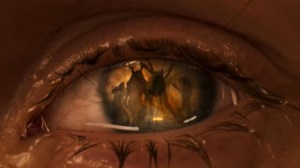UFOs have found themselves atop the news cycle plenty of times this year, largely because of the government’s increasing interest in the unidentified crafts. Though UAP—or unidentified aerial phenomena—sightings earlier this year led the Biden Administration to issue a statement shutting down the idea aliens were behind the sightings, a new paper written by one Pentagon official seems to offer a contrasting viewpoint.
Videos by ComicBook.com
Sean Kirkpatrick, the Director of the Department of Defense’s new All-domain Anomaly Resolution Office, wrote a paper in March discussing the possibility that some recent UFO sightings could have been alien probes. Alongside former Harvard Astronomy chair Avi Loeb, the two even go so far as to speculate about the technology such crafts could potentially use to reach Earth.
“Electronic probes employing conventional chemical propulsion and refueling that we currently understand, would be a likely choice for travel within a planetary system,” the duo writes. “Some combination of conventional propoulsion, ion propulsion, or lightsail propulsion would provide good choices for crossing the tens of thousands of light years the span the scale of the Milky Way galaxy. Such autonomous systems could be designed to survive even if the senders are not able to communicate with them, and deposit probes upon arrival toe the target planetary systems.”
According to Loeb, Kirkpatrick approached him about writing a paper last year. The scientist told Politico he has no access to confidential documents, nor does the Galileo Project—a Harvard project he chairs—receive funding from the Department of Defense.
“It’s perfectly legitimate when you face the unknown to consider what your imagination allows you to consider, and then get data that rules it out or rules it in,” Loeb told the website.
While other scientists remain skeptical, Congresspeople like Senator Kirsten Gillibrand (D-NY) continue to support to research of UAP given the potential national security threats they pose.
“Stigma against discussion of this topic can prevent the military from better understanding potential threats to our airspace or collection risks from our adversaries,” Gillibrand said in a statement to Politico. “De-stigmatizing and standardizing reporting is essential to characterizing what is in our airspace.”
For additional space and cosmic stories, check out our ComicBook Invasion hub here.








